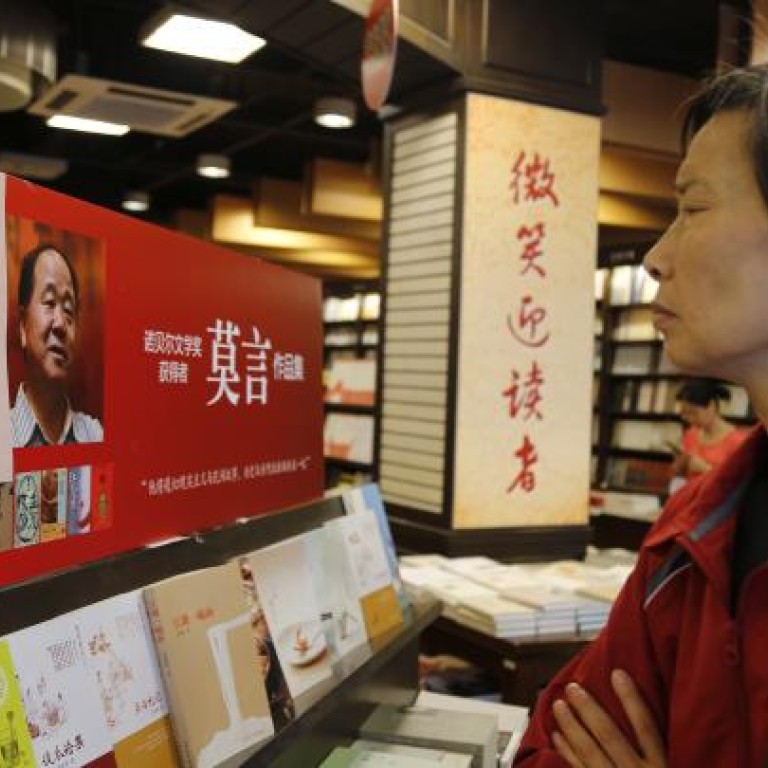
Writers should be true to their convictions
Chang Ping isn't convinced that Nobel winner Mo Yan's works honestly reflect his inner struggles
I still remember that afternoon more than 20 years ago when I first read . I was bowled over. I hadn't yet come across the works of William Faulkner or Gabriel Garcia Marquez, and as I read then, I felt a rush of elation that a story about "my grandfather" and "my grandmother" could be told so boldly and without restraint.
Now when I reread the novel to try and recapture that thrill, I realised it is gone for good. I also tried to read Mo Yan's other works that I hadn't read before, but I gave up before long. A voice inside kept telling me I was wasting my time.
I stopped reading his works some years ago because his verbose and repetitious writing began to irritate me. Now, I must admit that I don't like his work for reasons other than literary merit.
A writer can be politically incorrect or completely apolitical, but he must be honest. If a writer writes honestly about something outside politics, or reflects movingly about his inner struggles, that's something of value to us.
But if a writer has to walk a fine line in his daily life, yet the content of his works reflects nothing of this spiritual tussle, I can only conclude that the works are not serious.
Mo Yan once told a foreign reporter after the June 4 crackdown in 1989 that he had lost faith in the Chinese Communist Party. Yet he kept his party membership, accepted party promotions and today is the vice-chairman of the state-run Chinese Writers' Association.
He spoke up for writer Gao Xingjian, whose Nobel win in 2000 was a thorn in the side of the Chinese government, but at the Frankfurt Book Fair a few years later, Mo Yan, along with a number of other Chinese writers, walked out of an event that dissident writers Dai Qing and Bei Ling also attended.
Most unbearably, Mo Yan accepted an invitation from a publisher to hand-copy Mao Zedong's "Yanan Talks on Literature and Arts", which was widely seen as the document that permitted and encouraged the repression and persecution of Chinese artists and writers for over 60 years. As it turned out, Mo Yan would not have got into trouble if he had refused to take part.
In the section Mo Yan copied out in the commemorative publication, Mao said: "Members of the Communist Party shall support the position, the spirit and the policies of the party." Yet Mo Yan said that literature should be independent of politics and political parties, and focus on people and humanity.
This sets Mo Yan apart from the scores of "politically incorrect" writers in history, including Zhou Zuoren, Eileen Chang, Jean-Paul Sartre and Mikhail Sholokhov. All of them were sincere in literature and in their political views. It isn't that Mo Yan takes life and politics lightly, but he is not being true to himself or others.
Mo Yan is typical of this generation of Chinese writers. They have a talent for words and are highly perceptive, and excel at borrowing ideas from foreign contemporary writers and adapting them to China's context. But they draw the line at a more serious examination of their lives, and at taking any social responsibility.
This was once a position of rebellion; now it's a loser's refuge. At the end of the Cultural Revolution, a generation of artists led the resistance and detachment of arts and culture from politics. The late 1970s and early 1980s saw the rise of the so-called Misty Poets and a group of painters who turned their backs on overt propaganda.
But the pushback from politicians came soon enough. A film on the Cultural Revolution, , drew a rebuke from Deng Xiaoping , who decreed that art and literature should abide by four principles.
With direct criticism of party and politics forbidden, writers turned to a more subjective exploration of the trauma and pain of the Cultural Revolution. The genres of "scar literature", "roots literature" and "pioneer literature" were products of this time, and young writers like Mo Yan emerged and made a name for themselves.
There was an implicit resistance to politics in these literary movements, in their refusal to allow art to serve political ends. But after June 4, this kind of "pure literature" became an excuse for writers to escape the political reality, and it was easy to take the coward's position of keeping quiet, or the cynic's.
Market forces also played a role. This kind of writing found a popular audience, and the works of these writers became best-sellers and brought them some commercial success.
The relationship between literature and politics has been tested on occasion since the 1990s. Mo Yan's award of the Nobel Prize in literature is but the latest controversy to spark divided views. Sadly, these views may not be debated in the mainstream Chinese media but are only found sporadically on the internet.
